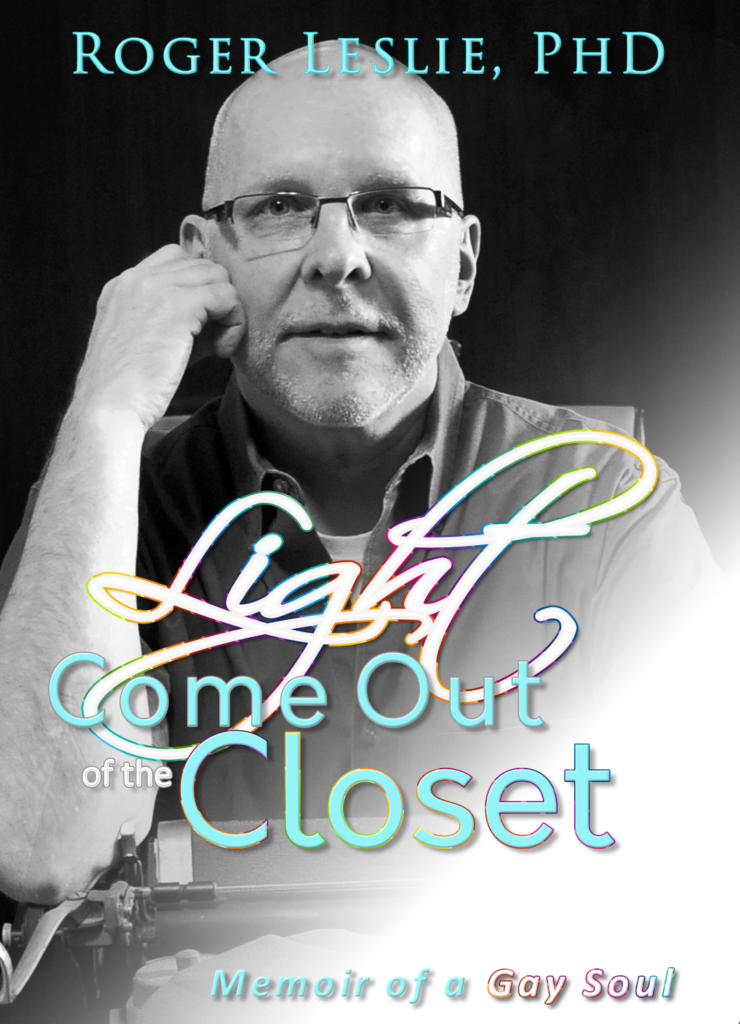Interviewed by Lucia Matuonto
Bio
Dr. Roger Leslie is a scholar in the fields of success and education. Through major literary houses, medium and small presses, and his own publishing house, Leslie has published fiction and nonfiction books in multiple genres: historical fiction, inspirational self-help, spirituality, writing and publishing, movie reference, teaching and librarianship, biography, history, and memoir.
Leslie has won numerous national awards including ForeWord Book of the Year, The Ben Franklin Award, and Writer’s Digest’s #1 Inspirational Book of the Year. At its inaugural event, Leslie received the Houston Literary Award for his body of work.
In every book and presentation, Leslie entertains, inspires, and empowers people to live the life they dream and soar toward their own ideal of success. For more, visit https://rogerleslie.com/
Hello Dr. Leslie, what motivated you to become a writer, and how did you get started?
The inspiration came to me while sitting in a movie theater. In 1974, my dad took me to see Murder on the Orient Express. That first viewing, I felt giddy with fascination. I kept thinking, I love this movie! As we left the theater, my dad told me my grandmother was a huge Agatha Christie fan and suggested I see the movie again with her. The second time I watched it, my exhilaration about the film’s ingenious writing transformed into an epiphany: I want to impact others the way this movie is impacting me. That moment, my destiny solidified.
At age 13, I didn’t know if I had the talent or fortitude to become an author. However unevolved we are when we’re inspired never matters. When we feel to our very soul that something is meant for us, we must only take action and follow where spirit leads. Life will take us where we’re meant to go. The following week I wrote my first short story. I’ve been writing ever since.
How do you come up with the ideas for your stories or books?
My goal is to be open to the creative process. In that frame of mind, I don’t take credit for coming up with ideas for my books. The ideas come to me. If I’m curious about a topic, I’ll start reading. If I have questions that I don’t find answered in other writers’ works, I often feel inspired to write them myself. For example, when I was a high school literature teacher decades ago, some classes had to write biographical essays about any author in their literature textbook. At the time, older books about Danish author Isak Dinesen were out of print, and Judith Thurman’s excellent but lengthy National Book Award-winner, Isak Dinesen: The Life of a Storyteller was too daunting for students to even pick up. So, I wrote Isak Dinesen: Gothic Storyteller, a YA biography of her life for students researching her for that assignment.
More often than not, I will get a spiritual inspiration that leads to a new book. One night I had a dream to live the next 365 days as if I would never experience those dates again. I wasn’t necessarily told I would die in a year, but I was to live as if I might, packing in everything I wanted to do for myself and others so that, whenever I did reach the end of my life, I would have left nothing undone. I jumped out of bed that morning and began living what has come to be known, My First Last Year. The record I kept of that life-shaping year became that book.
Could you share a bit about your latest work? What was the inspiration behind it, and what do you hope readers will take away from it?
My heart goes out to those LGBTQ teens who feel isolated and lonely, or whose focus on figuring out their soul or just surviving in environments hostile to them keeps them from utilizing their natural talents. Those hostile environments include school, church, and sometimes their own home. I explored my unique journey out of that environment in my latest book, Light Come Out of the Closet. Now I’ve written No Stranger Christmas to shine a light of hope for those readers in any such environment. I also wrote it in such a way that I hope, adults who want to better understand how difficult it is to navigate those struggles can. Even more ambitiously, I hope adults who have negative religious preconceptions about gender or sexuality will discover that, as one character says in the novel, “God doesn’t make mistakes. You know that, don’t you?”
How do you choose the titles for your books, and what significance do they hold for your stories?
I always start with a generic title just to give the work a name. For example, for the first several drafts, I named my Christmas novel, Christmas Eve. I knew I couldn’t leave the book with so vague a title. It needed something that resonated and implied something about the tone, theme, or spirit of the novel. That’s the significance, and the power, of titles.
During one of the revisions, the word “stranger” caught my eye more than once. That week while driving, I toyed with that term. In the background, my brain was barely registering that from my playlist, Dolly Parton was singing her version of “Stairway to Heaven.” When she sang the line, “Cause you know sometimes words have two meanings,” my brain jolted. That was it! Something about using two different meanings held the key to the theme and the title. After working with a few options, and revising the novel to highlight that inspiration, I came up with the title No Stranger Christmas.
Can you describe your typical writing process? Do you have any specific routines or habits that help you write?
I just write. As a former literature teacher and professor, and now writing coach, I tell students and clients that the biggest obstacles to completing any draft are planning too much and revising too soon. For many aspiring authors, too much planning is simply a way of delaying that courageous leap into starting the first draft. Editing while writing the first draft is fatal. Writers don’t know what to edit until they’ve completed the first draft because—for fiction and nonfiction—every element of the work has to build toward a satisfying conclusion. It usually takes writing the first draft to discover what your characters in fiction and your ideas in nonfiction really want to convey. At first, a book is as much of a mysterious journey for the writer as it is for the reader.
How do you personally measure success as an author, beyond book sales and bestseller lists?
I believe the key to all success can only be measured through our own personal standards, never the standards we might assume have been set by the world or are promoted through our society.
When we set a goal, inherent in that effort is the spirit behind it. For decades now I have taught success and goal setting lessons at high schools and universities around the country. I help students distinguish between a goal and an objective. A goal is the concrete, usually short-term effort we make to change a circumstance. But what drives that goal is the objective—the result we believe achieving that goal will bring us. Maybe it’s happiness. Maybe it’s love. Maybe it’s wealth. No matter what it is, that objective always ties in directly with who we think we are and the worth we are building by what we contribute to our own lives and to the world.
I am grateful for book sales and every bestseller status. I cherish the awards I have received because they are an external acknowledgment that others have found valuable the product of my efforts.
But the joy is in the journey. The greatest fulfillment from being a writer is sitting at my desk, day in and day out, with no one else around, living with the words, communing with the characters, and striving, always striving to create something of excellence that will inspire or empower readers.
Like any great gift, one must give it with no strings attached. As a writer, I commit to my mission. I bare my soul. I work and work to reshape early drafts into clean, crisp, resonant prose. I strive for writing so sincere and beautiful it might touch readers’ souls and ensure them that someone else knows their dreams, their struggles, and their joys.
Fortunately, writers never reach the pinnacle of writing a perfect book. That glorious, unattainable ideal spurs writers to start the next book. Every time we conquer one peak of that mountain, we see the next in the distance. There is always one more book to write where we can try once again to do what we hadn’t done before more eloquently and more meaningfully for the readers we hope to touch.
If there were ever a more alluring or fulfilling quest, I can’t imagine what it could possibly be.
What do you find most challenging about the writing process, and how do you overcome those challenges?
I love a challenge. Recently I was working on my fourteenth revision of my YA novel, No Stranger Christmas, and was exhausted! Sometimes my brain would flash some very unhelpful thoughts. One was, I must be getting older because this revision has been very difficult. Since my first draft of over 600 pages, I had honed and tweaked and pared it down to less than half that total. When I stepped back to see what I had accomplished, I realized I was running a metaphoric marathon, and was actually using creative muscles and sustaining momentum in ways I never had before. In that moment of realization, the challenge shifted from wearing me out to invigorating me. As if getting my second wind with the finish line in sight, I sped through the rest of that revision (and one more after that). It has resulted in what I hope is one of the strongest books of my career.
Thanks to this lesson, I don’t recommend overcoming challenges. I invite people to dive into them and stay the course until they build new muscle and learn who they really can be. We’re always capable of doing more and being more than we believe about ourselves before we accept the challenge.

Could you give us a glimpse into your next project or any upcoming works in progress?
In my weekly routine, I work on multiple books. For years I had a vision that I would publish one new book every year. But because of my work style, I end up having some years where nothing new is published, and somewhere several come out within months of each other. That’s happening now. Last June, Light Come Out of the Closet was published. In January, then February, then March, three volumes of my Book of Days series will be available. Then this coming June my LGBTQ young adult novel, No Stranger Christmas will be released to support Pride Month.
I just finished sending final revisions to the typesetter for three Book of Days volumes. Currently, I am awaiting feedback from beta readers as I proofread the final draft of No Stranger Christmas. Meantime, I am also researching information about my former students for a book I wrote in tribute to them during my years as a classroom teacher. My publicist and I will set the publication date for that book once our graphic designer determines when he can get the illustrations completed. Working on different books at different stages makes the work manageable and keeps my career challenging and diverse.




